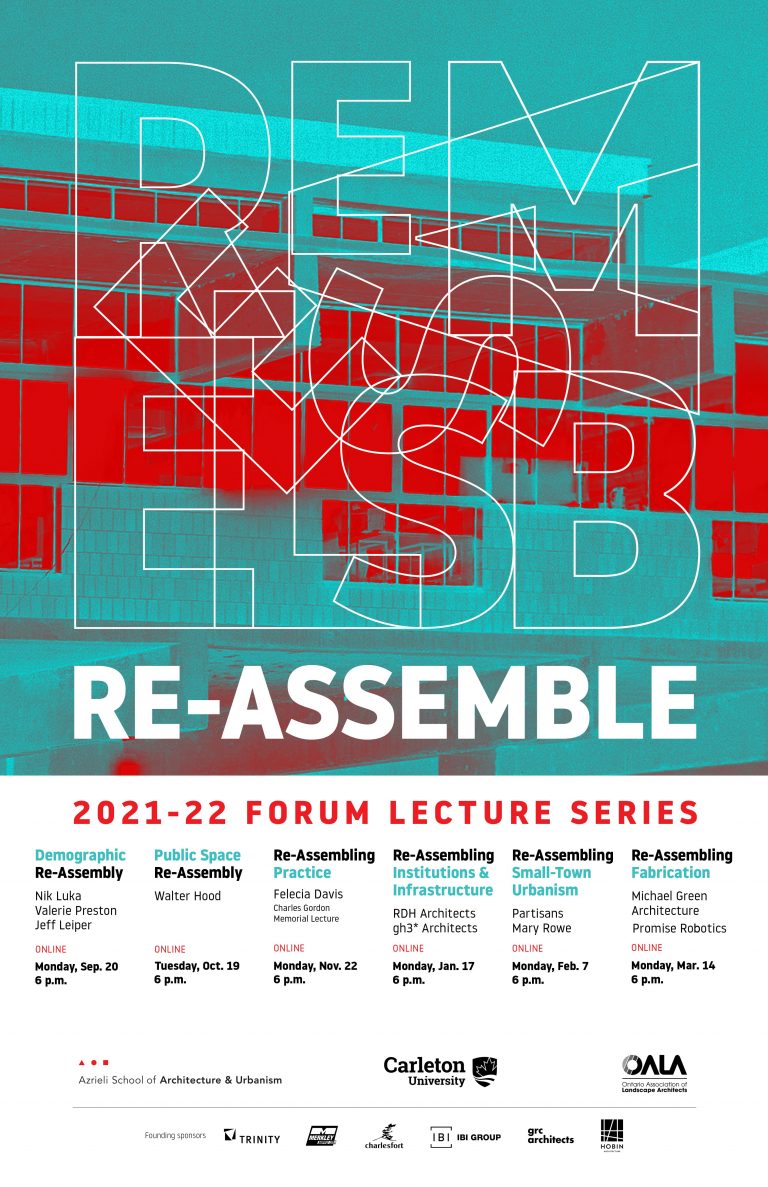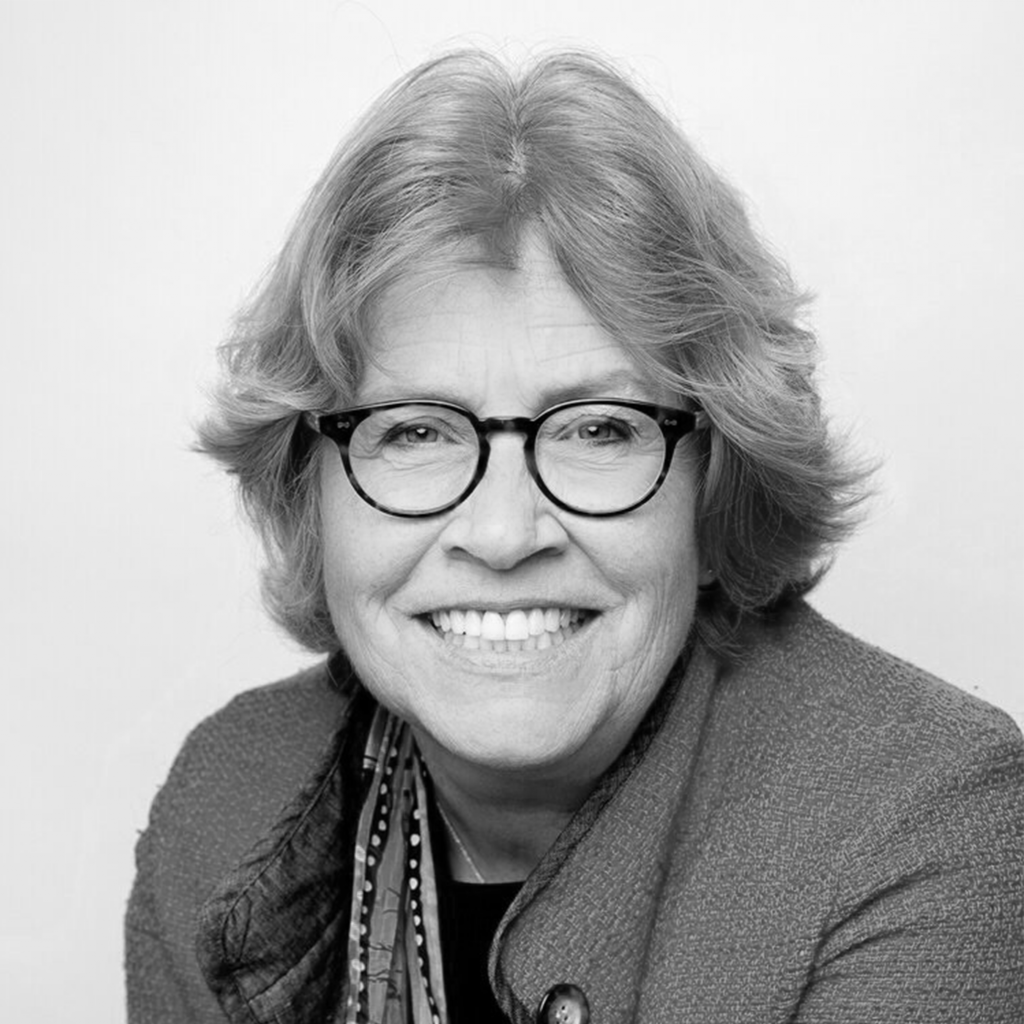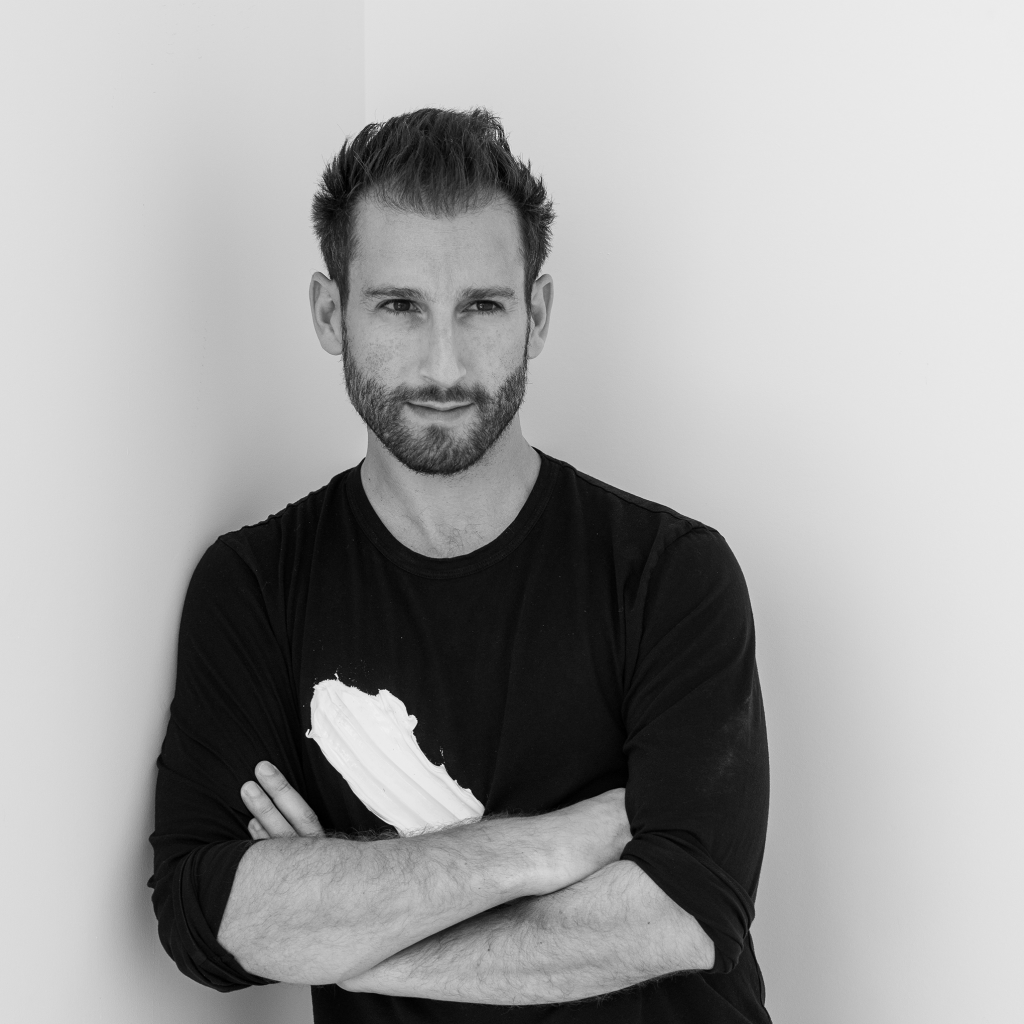Forum Lecture: Re-Assembling Small-Town Urbanism
February 7, 2022
6:00 pm EST

2021-2022 FORUM LECTURE SERIES: RE-ASSEMBLE
RE-ASSEMBLING SMALL-TOWN URBANISM
Monday, February 7, 2022
6:00 p.m. EST
Free public online event
Topic
Much of the focus on urban change over the past decade has centered on large cities. At the same time, smaller urban cores and peripheral towns have also undergone significant alterations, particularly with the arrival of a new cohort of young working professionals and a focus on denser transit-oriented development. The drive to work-from-home brought about by the pandemic has further led many to flee large cities in search of greater space and buying power. The result has been a dramatic reassembly of small-town urbanism. This Forum Lecture invites speakers to unpack the many transformations taking place in such communities. They will discuss specific cases as well as cross-Canada trends.
Speakers

Mary Rowe
President and CEO at The Canadian Urban Institute
Mary W. Rowe is a leading urban advocate and civil society trailblazer who has worked in cities and with communities across Canada and the United States. Mary was president of Ideas That Matter, a program based on the work of renowned urbanist Jane Jacobs, when a mid-career fellowship with the US-based blue moon fund led her to New Orleans. There she worked with philanthropy, governments and community activists to support rebuilding through micro-investments in the aftermath of Hurricane Katrina. Prior to joining CUI she served as executive vice president of the Municipal Art Society (MASNYC), one of America’s oldest civic advocacy organizations focused on the built environment.

Alex Josephson
Co-founder of Partisans, an award-winning Toronto architecture studio
Alex Josephson co-founded PARTISANS in 2012 after studying architecture at the Universities of Waterloo and Rome, and the Architectural Association School of Architecture (AA). The only Canadian to have ever received the New York Prize Fellowshipat the Van Alen Institute, Alex was named 2015 Best Emerging Designer by Canada’s Design Exchange. He currently lectures at the University of Toronto’s Daniels Faculty of Architecture. Alex is a registered architect in Ontario. He is known for his work on The Orbit, Glitch Tower, Gusto 501, and Fold House. Before starting PARTISANS, he worked in the studio of Doriana and Massimiliano Fuksas in Rome, Italy.
About Re-Assemble
The notion of assembly is at the core of architecture, from building materials to community connections, theoretical frameworks to programmatic uses, structural components to project teams. It is through these broadly defined yet inter connected assemblies that we construct our built environment. As we navigate new ways of convening and interacting with one another following the easing of lockdowns, the 2021-22 Forum Lecture Series turns to these many processes of architectural assembly and re-assembly.
Reflecting on the current state of society and design’s role within it, we ask: In what ways are people, places and practices today being re-assembled? How is this driving innovation in design research, professional practice, and pedagogy?
The history of architecture is one of perennial re-assembly—of building on and iterating theories, of reconfiguring design concepts, approaches, and collaborations, in addition to physically constructing materials and spaces. The altered social behaviours, ad-hoc spatial configurations, shifting demographics, and growing virtual realm of our past pandemic-focused year have only underscored our impetus to re-assemble.
Unpacking these dynamics, this lecture series investigates the future possibilities of physical, spatial, and operational re-assembly within our urban realm, acknowledging that these processes are not exclusively within the purview of design professionals.
We acknowledge the generous support of our founding sponsors:
This lecture will discuss current opportunities and challenges to conceive new modes of practice, reflecting on how we might re-assemble team structures and office hierarchies while further bridging academic research with pedagogy and professional practice. By showcasing Dr. Davis’s work, the lecture will focus on new means of design collaboration, foregrounding the increasingly blurred lines between professional and academic pursuits, theory and practice.
Our profession now brings together designers and scholars alongside industry and community partners. Many strive for a more comprehensive and intersectional understanding of environmental, technological, and social processes that impact their work. Modes of production and collaboration are changing to better integrate practice with theory. This is happening as approaches to design and construction rapidly evolve to account for accelerating technology, and designers become more ethically aware of their work’s socio-political impacts.
About Re-Assemble
The notion of assembly is at the core of architecture, from building materials to community connections, theoretical frameworks to programmatic uses, structural components to project teams. It is through these broadly defined yet inter connected assemblies that we construct our built environment. As we navigate new ways of convening and interacting with one another following the easing of lockdowns, the 2021-22 Forum Lecture Series turns to these many processes of architectural assembly and re-assembly.
Reflecting on the current state of society and design’s role within it, we ask: In what ways are people, places and practices today being re-assembled? How is this driving innovation in design research, professional practice, and pedagogy?
The history of architecture is one of perennial re-assembly—of building on and iterating theories, of reconfiguring design concepts, approaches, and collaborations, in addition to physically constructing materials and spaces. The altered social behaviours, ad-hoc spatial configurations, shifting demographics, and growing virtual realm of our past pandemic-focused year have only underscored our impetus to re-assemble.
Unpacking these dynamics, this lecture series investigates the future possibilities of physical, spatial, and operational re-assembly within our urban realm, acknowledging that these processes are not exclusively within the purview of design professionals.
We acknowledge the generous support of our founding sponsors: